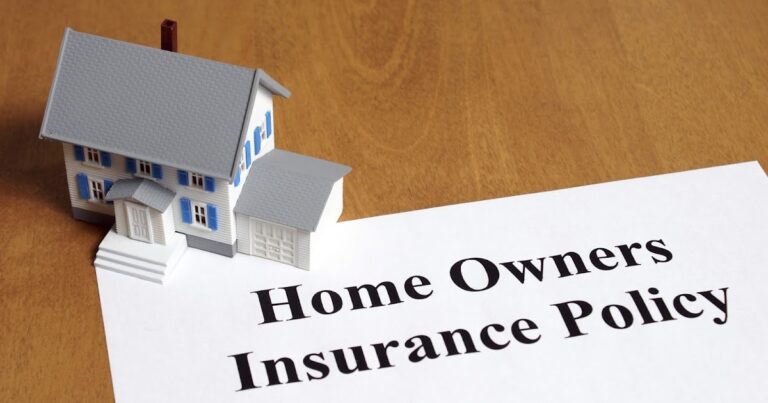Renters Property Insurance: Why Every Renter Should Be Covered
Many renters mistakenly assume that their landlord’s insurance policy will cover their personal belongings in case of fire, theft, or other unexpected events. Unfortunately, that is not true. If you are renting an apartment, condo, or house, your possessions are not protected unless you have your own renter’s property insurance policy.
Renters property insurance is one of the most affordable yet essential tools renters can have to protect their finances and peace of mind. Whether you are living in a downtown high-rise or a suburban rental home, this guide breaks down everything you need to know about renters property insurance, why it matters, and how to get the best deal.
What Is Renters Property Insurance?
Renters property insurance is a type of insurance policy specifically designed for people who live in a rented residence. It protects your personal property from damage or loss and provides liability coverage in case someone is injured while visiting your home.
Unlike landlord insurance, which only covers the structure and property owner liability, renter’s insurance focuses solely on the tenant’s financial protection. It covers what the landlord’s policy does not.
Why You Need Renters Property Insurance
Many renters underestimate the value of their personal belongings or assume that major disasters are unlikely. But unexpected events do not just happen to homeowners.
Here is why renters property insurance is essential:
-
It covers personal belongings from risks like fire, theft, smoke, vandalism, or certain types of water damage
-
It protects you financially if someone is injured inside your rental and sues you for damages
-
It helps pay for alternative living arrangements if your unit becomes uninhabitable due to a covered event
-
It offers peace of mind that you will not face financial hardship if something goes wrong
-
It is often required by landlords as part of lease agreements
What Does Renters Property Insurance Cover?
Renters insurance includes several forms of protection that work together to ensure you are not left vulnerable.
Personal Property Coverage
-
Covers personal belongings such as clothing, electronics, furniture, kitchenware, and more
-
Applies to items lost due to theft, fire, lightning, smoke, windstorms, vandalism, and some types of water damage
-
Can include items stored outside the home, such as bicycles or items in your car
-
Covers your belongings even when you are traveling or temporarily away from home
Liability Protection
-
Covers legal expenses if someone is injured in your rental due to your negligence
-
Includes medical costs, legal defense, court fees, and settlement payouts
-
Protects you if your dog bites someone or if a guest slips on a wet floor
-
Extends to damage you accidentally cause to someone else’s property
Loss of Use or Additional Living Expenses Coverage
-
Pays for hotel stays, food, and temporary rentals if your apartment becomes unlivable
-
Covers the extra costs you incur while your rental is being repaired
-
Essential during major events such as fires or significant storm damage
Optional Coverage Add-Ons
You can enhance your renter’s insurance policy with optional endorsements that fit your lifestyle:
-
Replacement cost coverage reimburses you for the full cost of new items rather than the depreciated value
-
Scheduled personal property coverage for expensive items such as jewelry, art, collectibles, or high-end electronics
-
Water backup coverage protects you from sewer backups and sump pump overflows
-
Identity theft protection assists with recovering stolen identities and monitoring credit
What Is Not Covered by Renters Property Insurance
It is equally important to understand what renters insurance does not cover so you are not caught off guard. Common exclusions include:
-
Flood damage unless you purchase separate flood insurance
-
Earthquake damage unless you add earthquake coverage
-
Pest infestations such as bedbugs, rodents, or termites
-
Roommates not listed on your policy
-
Wear and tear or intentional damage
-
Business equipment beyond certain limits unless declared under a business endorsement
Renters Insurance vs Homeowners Insurance
The main difference between homeowners and renters insurance lies in what is covered.
-
Renters insurance covers only personal property, liability, and living expenses for tenants
-
Homeowners insurance covers the structure, the land, and personal property
-
Renters policies are significantly more affordable than homeowners policies
-
If you rent your living space, you are responsible only for protecting your possessions and liability
How Much Does Renters Property Insurance Cost?
Renters insurance is one of the most budget-friendly forms of insurance available. You can get solid protection for less than the cost of a coffee per week.
Factors that influence the cost include:
-
Your location and the risks associated with it
-
The total value of your personal belongings and coverage limits
-
Your deductible (the amount you pay out of pocket before insurance kicks in)
-
Any added endorsements, such as identity theft or jewelry coverage
-
The insurer’s guidelines and available discounts
On average, renters insurance costs between 120 and 250 dollars per year. That works out to about 10 to 20 dollars per month.
Renters Property Insurance Providers
Choosing the right insurer matters when it comes to claim handling, digital access, and customer service. Top-rated companies offering renters insurance include:
-
State Farm with a strong network of local agents
-
Lemonade with AI-driven technology and quick claims processing
-
Progressive with bundling options for auto insurance discounts
-
Allstate with customizable policies and strong renter education tools
-
Nationwide with identity theft protection and reliable claim payouts
Smart Ways to Save on Renters Property Insurance
Renters insurance is already affordable, but you can reduce costs further:
-
Bundle your renters policy with auto or life insurance for discounts
-
Choose a higher deductible if you can cover small losses yourself
-
Install smoke alarms, fire extinguishers, or monitored security systems
-
Pay annually instead of monthly to avoid extra fees
-
Avoid filing small claims to keep your rates low
Choosing the Right Policy
Finding the right renters insurance policy is about more than price. Consider these tips:
-
Take inventory of your belongings to calculate how much coverage you need
-
Decide between actual cash value and replacement cost coverage
-
Ensure your liability limits are high enough for serious injury claims
-
Review exclusions and limitations in the fine print
-
Use online quote tools to compare policies
-
Speak with an agent if you have unique needs, such as renting with roommates
Do Students and Roommates Need Renters Property Insurance?
Yes. College students living off campus and roommates in shared rentals should have their own policies.
-
Students can protect laptops, textbooks, and electronics, which are common targets for theft
-
Roommates are usually not covered under each other’s policies unless listed specifically
-
Some insurers offer joint renters insurance, but it is often simpler and safer to have individual policies
The Future of Renters Property Insurance
With more people renting long-term due to rising housing costs, the renters insurance market is expanding. Insurers are adapting with modern tools and customized solutions.
Emerging trends include:
-
Usage-based insurance that adjusts premiums based on your habits
-
AI-driven claims processing for faster settlements
-
Integration with smart home devices for risk monitoring
-
Custom bundles for pet owners, freelancers, and renters with high-value items
-
Greater landlord awareness encouraging renters insurance as a requirement
Final Thoughts
If you rent your home, renter’s property insurance is your safety net. It is not about being fearful but about being prepared. Fires happen. Pipes burst. Break-ins occur. Lawsuits can arise when you least expect it.
Renters insurance is affordable, flexible, and critical for protecting what you own and who you are. Do not wait until disaster strikes. A few dollars a month could save you thousands and give you peace of mind. Protect your space. Protect your belongings. Protect yourself.





